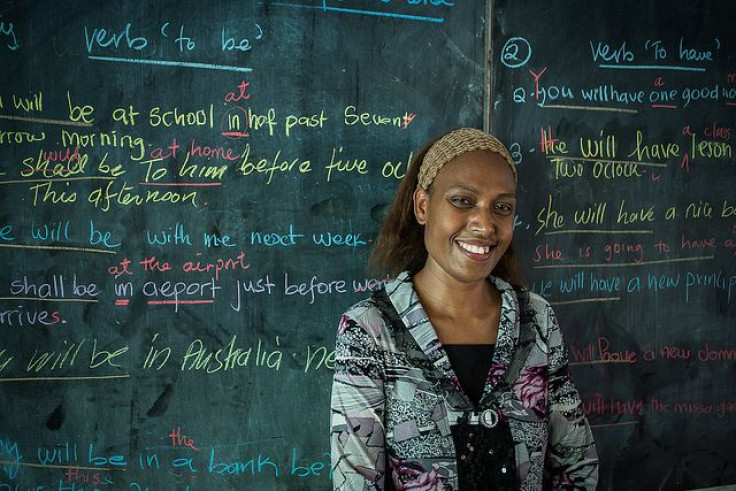Race In America: Having A More Diverse Teaching Staff In Public School Could Help Shape Perceptions Of Fairness In Government

For many, public school are the first real interaction with the federal government. Because of this, what happens in school can help shape a child’s perception of the government “fairness” for the rest of the their lives. According to a new study presented yesterday at the American Political Science Association Annual Meeting in San Francisco, having a diverse teaching staff is an easy way to increase the perception of school fairness in both the eyes of all students and could have long-lasting effects.
At yesterday’s conference, researchers from the University of Kansas explained just how significant of an effect a diverse teaching staff can have on students in public schools. According to their research, black students in schools with more black teachers have more in schools with more black teachers have more positive attitudes and higher perceptions of fairness in school discipline. Even white students appeared to benefit from a more diverse teaching staff, with the researchers observing that white students who attend schools with a higher number of minority teachers are also more likely to view discipline from school officials as fair.
"Increasing the proportion of minority teachers in a school enhances all students' perceptions of school discipline fairness," said Don Haider-Markel,co-author of the study in a recent statement . According to Haider-Markel, his findings support previous theories that public institutions function better when they are “staffed by people who look like the population more generally.”
This early intervention may be especially important for young black students who are about three times more likely than white students to be suspended or expelled from school. Haider-Markel proposes that black students who feel they are not being treated fairly in school may continue to distrust with all government-run institutions as they grow up.
"Schools teach young people about democracy and being a citizen directly, but schools, through their treatment of students, also teach students how the government views them as citizens," explained Haider-Markel.
This is not the first to investigate how effectively dealing with race in school can help to prevent racial tensions later in life. Another recent study proposed that discouraging students from discussing the issue of race may help to encourage a “color-blind” approach to racism, which ignores rather than fixes racial inequalities. The researchers also proposed that teaching color-blindness in school may even be detrimental to minority children’s development of self-identity .
Currently, America has found itself at a breaking point with racial tensions. Movements such as #BlackLivesMatter, and recent riots in Missouri and Maryland were spurred by brutal treatment of minorities by government officials and materialize the distrust that many young minorities feel towards government institutions. These findings suggests ways to help cast a more positive attitude towards government institutions and instill a healthier perception of race from an early age.
Source:Haider-Markel D, et al. University of Kansas. American Political Science Association Annual Meeting. 2015



























